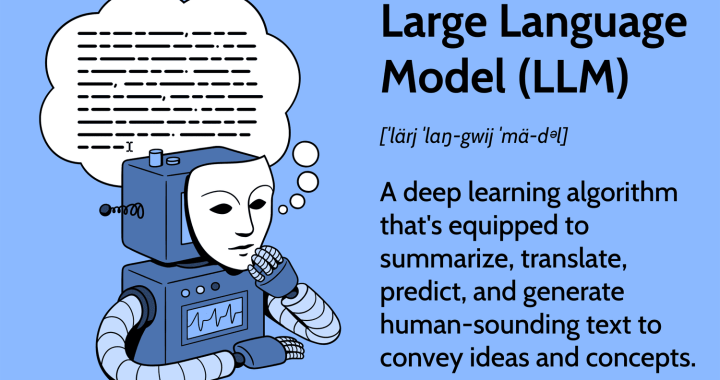(Photo from Investopedia.)
I thought I would have some fun with the disclaimer of my third novel. I wrote:
This is a work of fiction in progress, composed entirely by the author, without recourse to artificial intelligence. All story elements, including people and events, are fictitious or used fictitiously, subject to change, and spring from the author’s lived experience, active imagination, and research practice. The author takes full responsibility for the writing herein and full possession of the contents thereof.
It may be read as silly, serious, cheeky, or all of the above, I don’t know. My wife, who always reads my novels twice (the first time for joy, the second because I beg her), calls the disclaimer “quirky.” Perhaps that is the tone I chose unconsciously, to assert what every author today must assert: his or her authority, in his or her own voice.
I wrote my book, not no robot. I would swear this before any judge, I even have proof, unlike them, who never reveal their secret algorithms, like an aunt jealous of her successful flan recipe.
In any case, following that lack of laughter around me, as I edit the disclaimer over and over, I am approached by a pair of gargoyles, each with short legs and nauseating breath, who say: “Okay, buddy, but what difference does it make? Fiction is already a lie. Not to mention, you already use Word Processor, Google Translate, and borrowed phrases from the Western Literary Canon as the worst of the bots. Get off your pedestal!”
Luckily, I turn from my desk and realize that the gargoyles are only plastic, that I don’t have to pay too much attention to them. Nevertheless, in the wake of their murmurs, even more disturbing doubts emerge, a few that deserve reflection. It is that I do not see a clear difference between a text written by a human and a well-crafted imitation. I just feel that there is a difference. But this, my feeling, is worth very little in the marketplace of ideas. I imagine my hero Socrates visiting me on one of these summer afternoons in May, asking me the most pointed questions about artificial intelligence writing novels, but I would be in very little shape to offer him any satisfactory answer; perhaps, instead, I could offer him a beer in exchange for his opinion.
So let us be specific. What is the difference between fiction and artifice, imitation and mimesis, the tools at the disposal of any author (both language and pencil) and his unaltered linguistic production? And what is the latter, the soul of the artist, his Word? As much as possible, I avoid going to Mass, especially when it comes to solving my weekday problems. But I do find it curious to know on what ground professional artists stand today. They seem to have very little left. The technological advances of the last two thousand years—since an old king declared that there was “nothing new under the sun”—have appropriated the furrows of the land, the abacuses of the court, and the candle of the bedroom. Technology will soon take possession of the voice, or no? Borges said that the sword extends the arm, that the microscope extends the eye and that the book extends the imagination. But artificial intelligence, what does that extend?
Perhaps the invention of cuneiform gave birth to the story, or perhaps stories always existed. Perhaps the invention of the feather pen gave flight to the world’s most beautiful verses, or perhaps the cries of the solitary mind have assaulted one in the form of the femme fatale since the dawn of time. I wonder—with the nosiness of the novice and the energy of the fool—if chatbots will actually disrupt literature, or just lend the next step necessary to advance art, or if it eventually pass as quickly as the Tamagotchi.
A writerly example. There’s Truman Capote who mocks Jack Kerouac in an interview, saying that his On the Road isn’t worthy of the name novel: “That’s not writing, that’s typing,” he said, suggesting that the ferocious use of the keyboard over three and a half weeks of isolation, plus a huge roll of paper and half a pound of amphetamines, cannot lead to human achievement. Well, according to a post on Quora, Capote reneged on his insult. And it is enough to read the entire work to inoculate yourself of any anaphora against it. That said, I feel that we have returned to that crossroads between yesterday and today. Someone is insulting someone, but I don’t know who or whom.
There is a microphone attached to our shirt as writers, and a webcam recording our face, waiting for the answer to the question on everyone’s mind: How will artificial intelligence impact my industry, my life?
For the writers, we might ask something much more interesting: who will be our next great Kerouac, the one who writes a seminal work of art, but whom the old will reject out of sheer blindness? I for one don’t want to be blind, nor do I want to be among those crackling old men. But I do confess that I myself will never be a Kerouac. I repeat, my novel was not written with AI, nor do I suddenly plan to write one with it. It will have to be another novelist, a more adventurous novice, one who knows how to fly with wax wings, without getting too close to the sky—where the sun’s rays melt—nor too close to the sea—where evaporation also damages the wings of this new machination we hope can save us from ourselves.




